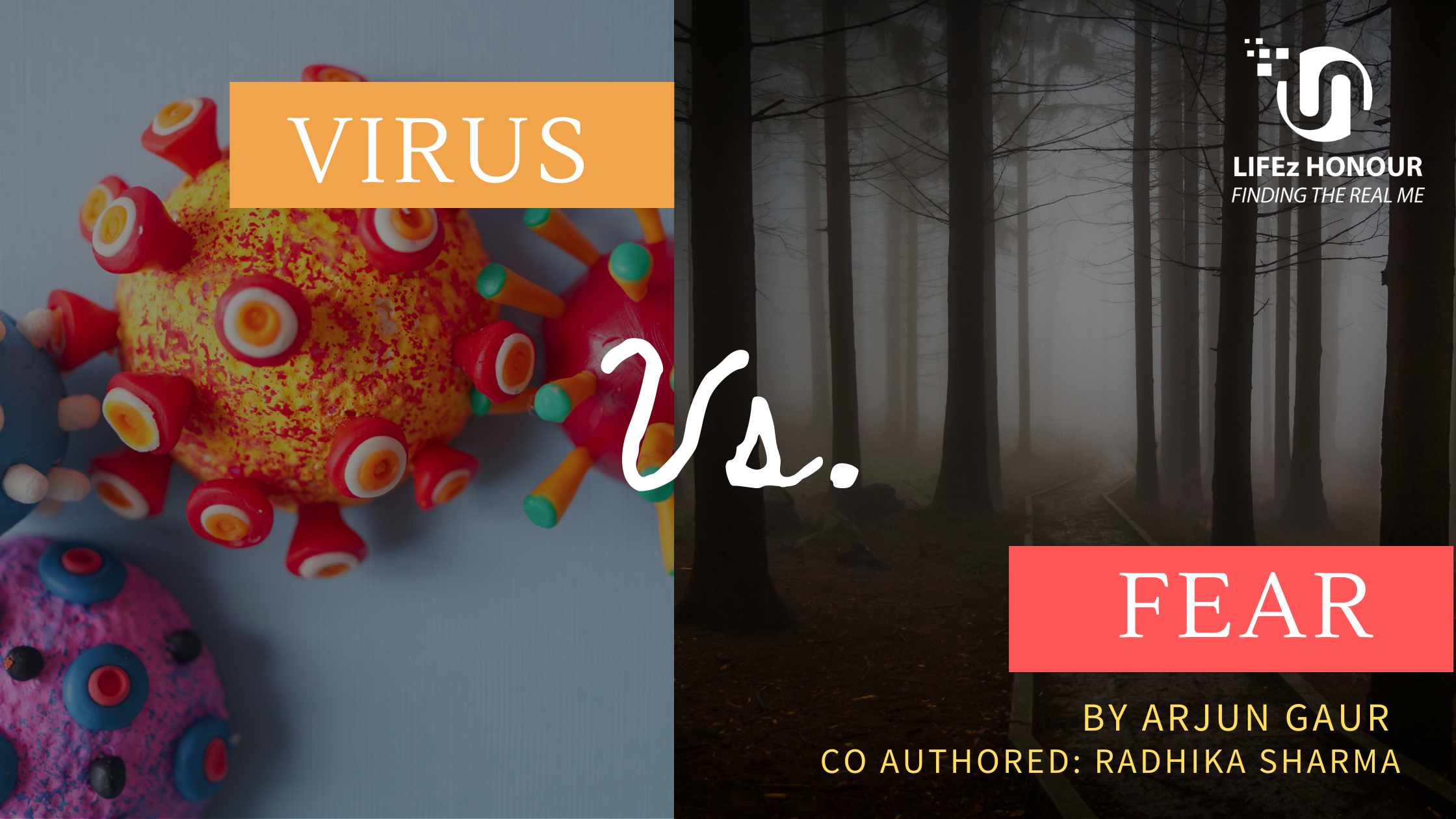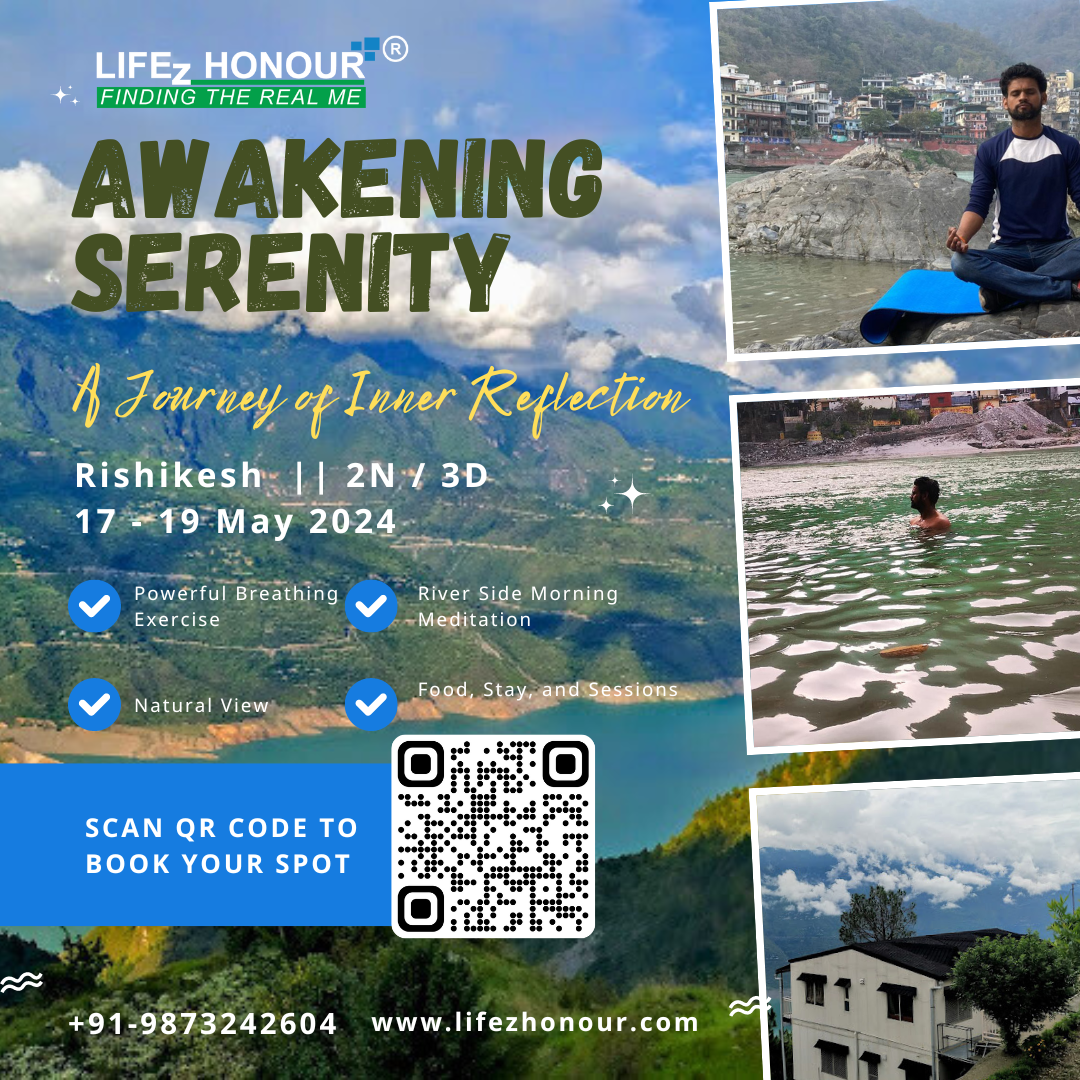Virus Vs. Fear
As the Covid-19 virus spreads, so do dread in our society. The globe is currently in a volatile situation, which has significantly increased fear levels. The majority of people have not left their homes because they are immobilized by viral fear. People have paired frightening imagery with the phrase virus, making it scarier than it is.
So, let’s understand what exactly do Fear means?
Fear is a primordial, and strong human emotion. It combines both universal physiological reactions and strong individual emotional reactions. Fear warns us that there is a risk or potential harm, whether it is physical or psychological.
Now, to understand better it can be further explained by an example:
Once a man, who was scared of contracting covid or becoming the source of infection for his parents developed frequent symptoms of cough and cold. When things worsened and the symptoms didn't go away, he opted to get a Covid test. He was terrified at every turn - what if it was covid, what if the test results were positive, who would look after the family, who would look after his parents? Such thoughts had completely occupied his mind. The day had finally come into his life when he would have to confront his worst fear: having a covid test. He parked the car across the street from the hospital, and the instant he stepped out of the car, he was overwhelmed by those thoughts once again. The road was there one minute, unoccupied and secured, and then there were noises, caustic odours, and agony from which one may or may not overcome. He was knocked down by a car, alienated and wounded, and in a couple of moments, he lost his life. Every human being will die. They're dying a slow death, but they're living their lives heedlessly. Some people know when they will die, while others do not. Similarly, in this scenario, it wasn't the car that was the issue, but rather his concerns that he was carrying with him while crossing the street. Fear, which he felt would protect him and his family, became a matter of grief for everyone.
This fear has impacted us on both indoors and outdoors models:
Indoor:
-
Work-from-home opportunities and virtual meetings have increased significantly as a result of the pandemic. Regardless, it has opened a new array of options for how businesses can function, but work from home may not be ideal for everyone's personality or potential, for example, some people may have toddlers who are unaware of boundaries and cause interruptions during the working day.
-
Job loss, reduced work, financial struggle, and alienation from friends and family are all sources of excessive stress. Financial stress is the most prevalent, making it difficult to put food on the table or pay bills, as well as weakening our sense of self-worth.
-
There is a lack of social interaction. Not only has everything gone virtual, but everyone is so frightened of contracting a virus that they've begun quarantining themselves at home.
-
There are people finding it difficult developing a perfect routine that works for them and even troubles to separate work life as well as home life. They've lost space as a result of this procedure. Sudden and abrupt changes as a result of spending more time at home require adjustments and changing needs for personal space, which has resulted in tension or conflicts. During this period, many began to develop doubts about the relationship's future.
-
Some people struggle with knowing how to disengage from work, resulting in longer hours, higher stress, and eventual exhaustion and breakdown.
Outdoor:
-
People have ceased to live in the present. Nobody denies that the future will arrive one day. But what has perplexed people is the immobility of the moment, the absence of forwarding movement. People seem to be either still in mourning or are preoccupied with what is to come, and in the process, they have forgotten to live in the now.
-
When people are stressed or anxious, their brain stops functioning, and as a result, people lose their capacity to focus. People who seemed to sit for hours to study or concentrate is now complaining that they can't even do it for 30 minutes, or it's tough for them to focus solely on one area because they have so much to do with both work and family.
-
People in this situation have a lesser energy state, and experiencing a sense of uneasiness all the time. This virus has certainly had an influence on our productivity. People are engaging in procrastination, while some are sleep deprived.
-
Our judgments have become harsher, especially toward strangers, leading to discrimination and prejudice. Our fears are so deep that we suspect every stranger of carrying the virus.
-
People are losing work possibilities because of their fear of viruses. They are even willing to stop coming out of their houses and seek opportunities to work, but they would rather stay at home and procrastinate.
The major challenge is - How to Deal with this fear?
-
Focus on the ‘Present’. Focus on what you can handle rather than worrying about "what ifs."
-
Consider the facts as life is unpredictable. Rather than stressing on how displeased you are, choose to focus on the positive aspects of your life.
-
Keep a positive attitude, work to allow changes as they come, and try to keep challenges in perspective.
-
Carry protection rather than thoughts e.g., wearing masks, social distancing, washing hands, keeping the 6 feet of distance, etc.
-
Take good care of yourself. Take care of both physical and mental wellness.
-
Even if you're physically apart, stay connected. Humans are social creatures. We are wired for communication.
-
Confine your use of social media and adhere to reliable news sources. Stop continuously monitoring the news and refrain from spreading rumours. Take care with what you share.
Be safe and healthy.
We have exclusively designed our 30 days of transformation program 'Fearless Transformation'. That we are offering you this program to balance your fear along with your daily routine activities.
By Arjun Gaur (International Life Strategist, Founder at Lifez Honour, and Author)
Co Authored: Radhika Sharma (Psychologist, Author, and Certified Psychotherapist)
For any suggestions or query, you can email us at support@lifezhonour.com

